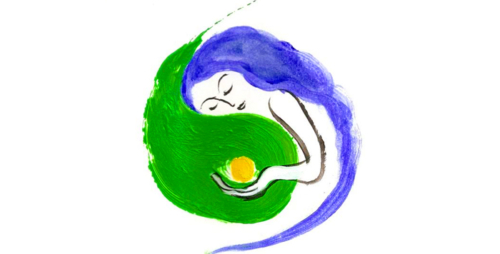Written By Carole Frost, Drummond Educator, Yoga Lead and MiBODY Director 
Yoga helps us connect various elements of our lives ranging from exercise, relaxation, nutrition and respiration, to meditation and self-awareness (spiritual development). It’s these links in yoga practice and philosophy that I believe draws so many people to Yoga. It also partly explains it effectiveness, because all its elements seem both to influence and are influenced by one another.
I wonder if as Yoga teachers, we really impart to our students just what a transformative practice yoga can be to so many areas of our lives. Often Yoga classes focus on physical Yoga practice that either strengthens or eases parts the body, or practices that alleviate symptoms of conditions, and I must stress there is absolutely nothing wrong with this whatsoever. However, if we think back to the text used in your teacher training, ‘The Yoga Sutras of Patanjali’, which is an ancient manual on the wisdom and practice of Yoga, it’s clear in Patanjali’s second Sutra: – Yogas citta vrtti nirodha’ or Yoga is the ceasing of the modifications of the mind (Please note this does not mean we do not think or become emotionally cold)!…that Yoga is a psycho-emotional practice, and indeed many of the threads of wisdom from Patanjali focuses on the condition and workings of the mind. As teachers it is worth asking the question…“Do we present Yoga not only as a physical practice, but also as a transformational practice that can change how our minds work for the better?”
An example would be spending time using Yoga to manage unwanted stress or anxiety, rather than understanding that yoga can help us to dodge it altogether through changed behavioural and thought processes. Pantanjalis words of wisdom really do act as a guide on how to build resilience, compassion, happiness and understanding in all areas of life.
Obviously what we can achieve with 20 students in a class for an hour a week is limited, Yoga is an ancient discipline full of wisdom to help us navigate a modern world. But we can inspire our participants to understand more about Yoga by infusing some of this ancient wisdom through our classes.
Let’s bring this transformative thinking into January, a time when many people are thinking of New Year resolutions and wishing to bring about change in their lives. Change is both necessary and positive, but many of these ‘changes’ are framed in such a way that presents the person as having ‘not been enough’, or lacking in some way. Now there is nothing wrong with an honest appraisal of our strengths and weaknesses, but rarely do I see people celebrate their strengths, they just focus on ‘what needs to better’. The result of this mode of thinking can lead to insecurity, anxiety and even depression.
The answer is not to stop self-evaluating, but perhaps it is to simply treat ourselves with the same kind of compassion and caring we would to a good friend. Sometimes to simply realise, that ‘We are simply enough as we are’ at any given moment in time.
In the words of Kristen Neff (PhD, and author of ‘Self-Compassion’), who has created a global movement in the techniques of self-compassion, “Self-compassion is a way of relating to ourselves kindly, of embracing ourselves as we are, flaws and all.” Her TedX talk, The Space Between Self-Esteem and Self-Compassion, has been viewed over million times.
In her research Self-compassion consists of 3 main parts, all of which we can introduce into our classes: –
- Be mindful of how you feel right now, so you can see if you are suffering or in pain
- Recognise our common humanity – that we are all imperfect and doing the best we can – so failure and hard emotions are inevitable. It’s damaging to feel we are isolated in our suffering, when in fact it is this that often connects us to others. It is okay when everything is not perfect!
- Self-kindness – Treat yourself with encouragement, patience and empathy
All of these 3 can be incorporated into our practice and /or meditations in class. Learning self-compassion does not undermine our motivation to change, in fact it can help to make us more successful, we naturally make better choices for our own good.
So maybe this year, let’s see Yoga as a tool to help us transform ourselves and help others to do the same with a very much-needed dose of self-loving kindness and self-compassion, knowing that wherever we are at in life, we are enough as we are, right now. It can be okay, for everything not to be perfect, in fact who says what is perfect, maybe perfect should be re-defined!
In my next article we will discuss the real meaning of Patanjali’s second sutra and how we can apply this in class.
Are you interested in instructing Yoga? Have a look at our courses today.
